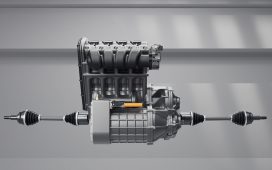So the half-time score at the mid-point of this year is 84 to 16. That’s 84 per cent of customers choosing to spend their money on new cars fitted with traditional fuel tanks requiring petrol or diesel to be pumped into them. And 16 per cent opting for tankless, 100-per cent EVs, which require nothing but electricity.
This sales ratio offers further confirmation that almost a decade and a half after going mainstream (with the launch of the basic Nissan Leaf, starting at £31k), pure EVs are still struggling to win over the hearts and minds of buyers. That’s the cold, harsh truth.
Honestly, the arrival in UK showrooms of that imminent and impressive-looking bunch of £20k-£25k pure-electric cars – led, of course, by the 2024 Auto Express Car of the Year, the Citroen e-C3 – can’t come a minute too soon.
As for the increasingly tense battle between little-known Chinese badges and the ‘Big Three’ brands from America, China is already thrashing the USA, thanks to car (not truck) production of 26 million annually, whereas the USA produces closer to two million a year.
In Britain, the Chrysler brand (RIP?) hasn’t sold a single car here this year. GM’s famous Chevrolet division has sold one. True, Ford is doing okay because it’s shifted almost 57,000. But that’s 22 per cent down on January-to-June 2023. And after its daft decision to kill off its best-selling Fiesta, a further decline for the Blue Oval seems likely.
Admittedly, China’s own ‘Big Three’ (well, sort of) start from a lower base in Britain. But MG registrations are up by 11 per cent year on year. And GWM Ora’s have grown by 202 per cent. But the fastest-rising car firm in the UK today is BYD, whose sales have rocketed by 2,833 per cent – which means it’s well on course to be the brand of the year. Isn’t it?
Do you agree with Mike? Let us know your thoughts in the comments section…









